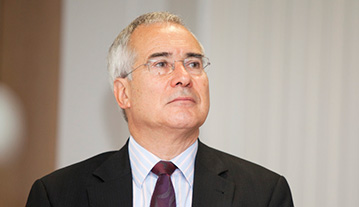Nicholas Stern welcomes Lima climate change agreement

Welcoming the agreement today (14 December 2014) at the 20th session of the Conference of the Parties to the United Nations Framework Convention on Climate Change in Lima, Peru, Nicholas Stern, Chair of the Grantham Research Institute on Climate Change and the Environment and ESRC Centre for Climate Change Economics and Policy at London School of Economics and Political Science, and President of the British Academy, said:
“This is an important step towards a new agreement at the climate change summit in Paris in December 2015, but it still leaves a number of important issues to be worked out between countries over the next 12 months. There has been a constructive atmosphere in Lima, and the Peruvian Government deserves great credit for creating such a positive environment for the negotiations. The countries of the world are increasingly recognising the urgency of the action required to tackle the immense risks of climate change, but must focus on the big issues of scale of action and of building mutual confidence and support in the months before Paris.
“It is vital that countries put forward before the Paris summit intended nationally determined contributions that are both ambitious and credible. However, it is already clear that the scale of action to control and reduce annual emissions of greenhouse gases will collectively not be consistent with a pathway that will mean a reasonable chance of avoiding dangerous global warming of more than 2 centigrade degrees above pre-industrial level. That means countries must continue to explore opportunities to increase emissions cuts. And they must build into the Paris agreement arrangements for moving purposefully thereafter to increase the scale of action.
“All countries must continue to engage in a collaborative way with each other to build mutual confidence. Rich countries must accept the responsibilities that are associated with their greater wealth and historical contribution to the rise in greenhouse gas levels in the atmosphere. They must help in tackling the effects of climate change that are already with us. And they should also work to create and unlock much greater public and private investments in clean economic growth in the developing countries, and not just re-label overseas aid budgets. There is great potential for sustainable and inclusive growth across the world. Investments in clean development hold the key to both managing the risks of climate change and overcoming poverty.”
NOTES FOR EDITORS
- Lord Stern is also chair of the ESRC Centre for Climate Change Economics and Policy and the Grantham Research Institute on Climate Change and the Environment, as well as I.G. Patel Professor of Economics and Government and Director of the Asia Research Centre, at London School of Economics and Political Science. Since July 2013, Lord Stern has been President of the British Academy for the humanities and social sciences. Lord Stern was Second Permanent Secretary at HM Treasury between 2003 and 2007. He also served as Head of the Government Economic Service, head of the review of economics of climate change (the results of which were published in ‘The Economics of Climate Change: The Stern Review’ in October 2006), and director of policy and research for the Commission for Africa. His previous posts included Senior Vice-President and Chief Economist at the World Bank, and Chief Economist and Special Counsellor to the President at the European Bank for Reconstruction and Development. He was recommended as a non-party-political life peer by the UK House of Lords Appointments Commission in October 2007, and Baron Stern of Brentford was introduced in December 2007 to the House of Lords, where he sits on the independent cross-benches.
- The ESRC Centre for Climate Change Economics and Policy (https://www.cccep.ac.uk/) is hosted by the University of Leeds and the London School of Economics and Political Science. It is funded by the UK Economic and Social Research Council (https://www.esrc.ac.uk/). The Centre’s mission is to advance public and private action on climate change through rigorous, innovative research.
- The Grantham Research Institute on Climate Change and the Environment (https://www.lse.ac.uk/grantham) was launched at the London School of Economics and Political Science in October 2008. It is funded by The Grantham Foundation for the Protection of the Environment (https://www.granthamfoundation.org/).

